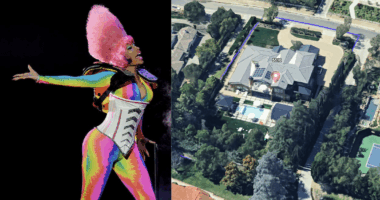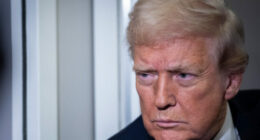Share this @internewscast.com
The life of an Olympian often leads to promising opportunities, even for those who don’t bring home a medal. Just participating in the Games can open doors, offering a springboard to a rewarding career. Athletes can relocate globally, command high fees for training future stars, or coach affluent amateurs eager to boast about learning from an Olympian. Many athletes leverage their Olympic experience into long-term success.
Consider Jonny Moseley as a case in point. A native of my hometown, albeit a few years my senior, Jonny clinched gold in Nagano and then embarked on a flourishing career. He became an MTV host, lent his voice to video games, served as a radio personality, and maintained a strong media presence for nearly three decades post-Olympics.
Here’s an interesting anecdote about Jonny: A friend of mine worked at a pizza parlor Jonny often visited after his Olympic triumph. Patrons would invariably ask to see his gold medal, likely assuming he wouldn’t have it on hand. Yet, Jonny would surprise them by producing the medal from his pocket. He carried it around for over a year because people were always curious to see it—and why not give them a memorable moment? It was a cool gesture, to say the least. But I digress.
Meanwhile, Canadian former Olympian Ryan Wedding’s post-athletic journey took a markedly different turn after his participation in the 2002 Winter Games in Salt Lake City. Rather than securing sponsorships or entering the media realm, U.S. federal prosecutors allege he transformed into one of the world’s top cocaine traffickers.
Just how extensive was his operation?
Authorities have likened the scope of his alleged activities to the infamous drug empires of El Chapo and Pablo Escobar. They claim Wedding managed a billion-dollar drug network, channeling massive amounts of cocaine from Colombia, through Mexico, and into both the United States and Canada.
And this week, federal agents made a particularly eye-popping move: they seized an ultra-rare 2002 Mercedes-Benz CLK-GTR Roadster worth an estimated $13 million:
As part of the Giant Slalom investigative developments announced last week involving FBI Top Ten Fugitive, Ryan Wedding, and his associates, a rare 2002 Mercedes CLK-GTR valued at $13 million was seized by the FBI.
Wedding wanted poster: pic.twitter.com/aBBfVbbUfS
— FBI Los Angeles (@FBILosAngeles) November 25, 2025
The car seized by federal agents is a 2002 Mercedes-Benz CLK-GTR Roadster, a model so rare many collectors will go their entire lives without seeing one in person. Mercedes originally built the CLK-GTR to satisfy FIA homologation rules for GT1 racing, which required a tiny number of road-legal versions to be produced. The company made 20 coupes and an even smaller batch of Roadsters. Only six were ever built, making the Roadster one of the scarcest production supercars in modern automotive history. When one of these cars does come to market, bidding typically begins in eight figures.
According to investigators, the CLK-GTR Roadster seized this week was purchased using illicit proceeds tied to Wedding’s alleged drug empire. Authorities say the vehicle was part of a broader pattern in which Wedding and his associates converted narcotics profits into high-value assets that could be hidden, transferred, or traded outside of traditional banking systems. As the investigation expanded, the car’s ownership trail helped prosecutors connect multiple shell companies, money-handling intermediaries, and individuals who allegedly helped Wedding move cocaine profits across borders.
The vehicle is now in federal custody, and unless the courts determine it was unlawfully seized or unconnected to criminal activity, it will likely be forfeited and eventually auctioned by the government. If that happens, it could become one of the most expensive cars ever sold through a law-enforcement forfeiture process.
From Olympian To Kingpin
Ryan Wedding grew up in Thunder Bay, Ontario, in a wealthy family with deep roots in winter sports. His grandparents owned the Mount Baldy ski resort overlooking Lake Superior, and it was there that he first learned to snowboard. By his late teens he had become one of Canada’s top young riders, specializing in the parallel giant slalom, a discipline that requires technical precision and exact timing. His results on the World Cup circuit earned him a spot on Canada’s Olympic team, and in 2002 he represented the country at the Winter Games in Salt Lake City.
Wedding competed in the men’s parallel giant slalom and placed 24th. The finish didn’t bring fame or sponsorships, and after the Games he continued competing for a short period before quietly retiring from professional snowboarding. What followed was a period federal investigators would later describe as the turning point in his life. According to court records, Wedding’s first major brush with criminal activity came in 2008, when he and two associates traveled to San Diego to purchase cocaine. The seller turned out to be working with the FBI. Wedding was arrested, convicted in 2009, and sentenced in 2010. During his sentencing hearing, he apologized to the court and said the pursuit of “easy money” had lured him into making “stupid and irresponsible decisions,” adding, “I guess I lost my way.” Believing he showed genuine remorse, the judge imposed a lighter sentence. With credit for time served, Wedding was released from federal prison in December 2011.
Prosecutors say his regret was short-lived. After his release, investigators allege Wedding began building a large-scale narcotics enterprise operating between British Columbia, Southern California, and Mexico. Federal indictments describe him as the architect of a drug pipeline that used long-haul semitrucks, stash houses in Los Angeles, maritime routes from Colombia, and distribution hubs across western Canada. The organization allegedly laundered its proceeds through shell companies, crypto channels, couriers, and luxury assets. According to officials, Wedding’s role grew to the point where he earned the nicknames “El Jefe,” “Public Enemy,” and “Giant,” with investigators comparing the scale of his operation to the empires once run by El Chapo and Pablo Escobar.
At a recent press conference announcing new charges, former Florida Attorney General Pam Bondi said Wedding’s network was responsible for importing roughly 60 metric tons of cocaine per year into Los Angeles alone, generating more than $1 billion in annual revenue. Prosecutors further allege that Wedding maintained his control through violence and intimidation, ordering hits on rival traffickers and putting a multimillion-dollar bounty on a federal witness who was preparing to testify against him. That witness was later murdered in Medellín, Colombia. Additional indictments accuse Wedding of directing a Canadian-based assassin crew, orchestrating multiple retaliatory killings, and using a now-defunct Canadian website to help locate his targets.
Authorities say several close associates helped enable his rise. His wife, Miryam Andrea Castillo Moreno, is accused of laundering money and assisting with acts of violence. His alleged security chief, Edgar Aaron Vazquez Alvarado — known as “The General” — is believed to be a former Mexican law enforcement officer who provides protection and intelligence. And a Canadian attorney, Deepak Balwant Paradkar, is accused of facilitating bribery, connecting Wedding to traffickers, and even advising on murder plots. Paradkar was arrested this week.
By the time U.S. and Canadian agencies unraveled the full structure of the operation, investigators described Wedding as one of the most prolific and violent cocaine distributors in the world. Those findings ultimately placed him on the FBI’s Ten Most Wanted list, triggered sweeping sanctions, and set off the multinational crackdown that led to the seizure of his $13 million Mercedes.
The Manhunt Continues
Despite the sweeping arrests and the seizure of high-value assets like the $13 million Mercedes, Ryan Wedding remains at large. Federal officials believe he is hiding somewhere in Mexico, protected by cartel affiliates and shielded by a close-knit network of loyal intermediaries. The State Department has posted a $15 million reward for information leading to his capture — one of the largest fugitive rewards ever offered in North America. Investigators say Wedding frequently changes locations, uses intermediaries to communicate, and may alter his appearance, but they remain confident the walls around him are closing in.
(function() {
var _fbq = window._fbq || (window._fbq = []);
if (!_fbq.loaded) {
var fbds = document.createElement(‘script’);
fbds.async = true;
fbds.src=”
var s = document.getElementsByTagName(‘script’)[0];
s.parentNode.insertBefore(fbds, s);
_fbq.loaded = true;
}
_fbq.push([‘addPixelId’, ‘1471602713096627’]);
})();
window._fbq = window._fbq || [];
window._fbq.push([‘track’, ‘PixelInitialized’, {}]);






